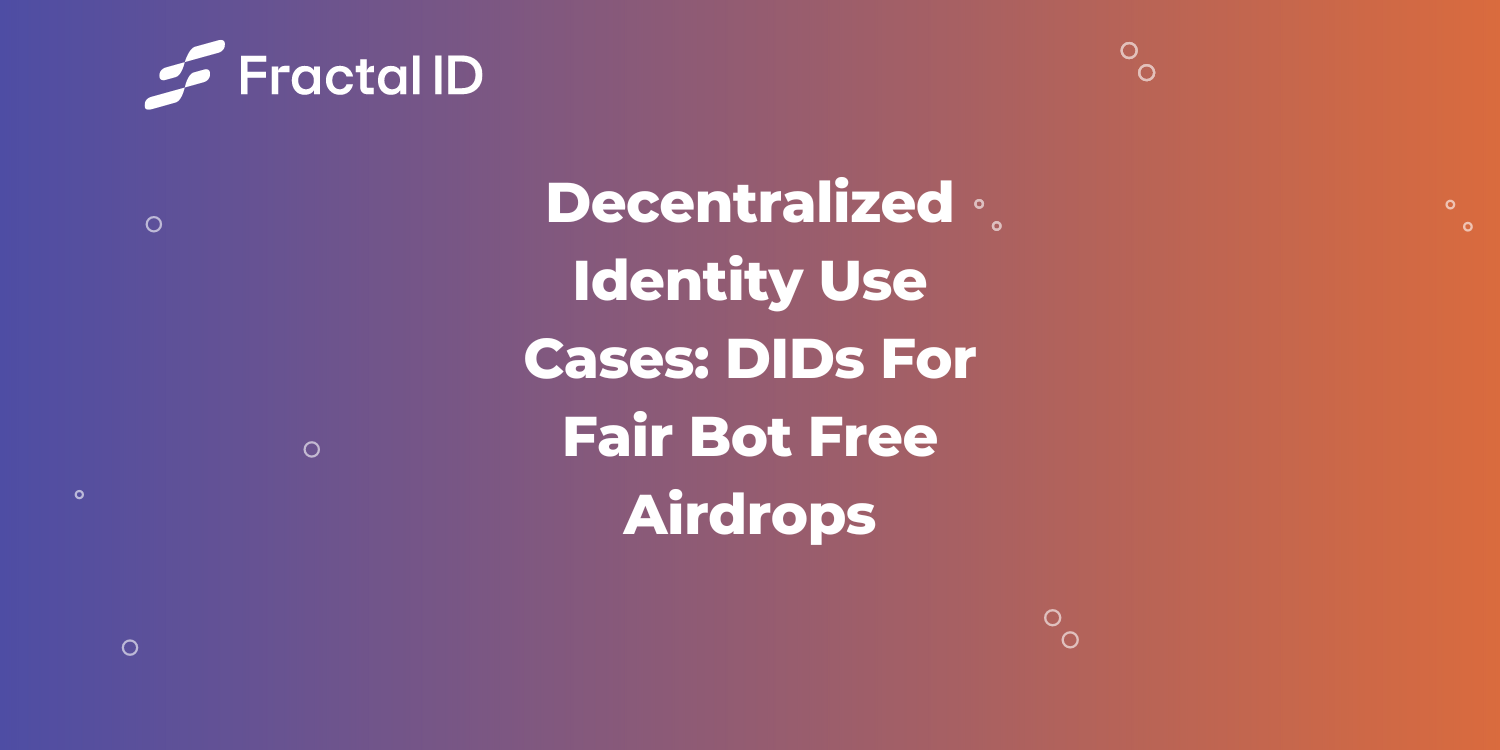Crypto and NFT airdrops are trending strategies among crypto startups to initiate interaction and establish relationships with their communities by enabling them to earn free tokens. A report from March 2022 shows that participants in some of the top airdrops on Ethereum were able to establish a portfolio worth ±$30K USD.
However, as with all pseudonymity-dominated environments, airdrops are prone to bot attacks that may drain liquidity and steal the opportunity from the businesses’ real users.
In this article, we explore how decentralized identity can establish grounds for fair airdrops and protect crypto platforms from harmful bots.
Exploring the current status of crypto airdrops
Airdrop campaigns involve sending free tokens/NFTs to user wallet addresses in aim to promote awareness about a certain token or brand.

Token airdrops have been rising in popularity in the past 3 years as more businesses are realizing the importance of such marketing efforts.
However, airdrops suffer from multiple challenges, including sybil and bot attacks.
For example, early on in January 2022, trading bots cleared hundreds of Ethereum from the WTF/WETH liquidity pool on Uniswap leaving the users frustrated and the liquidity pool drained.
Why fair airdrops are important
Airdrops help DApps grow in numerous ways such as:
- Increasing awareness about a new project/DApp: As many airdrops require some level of interaction from the user with the brand (e.g. posting social media content about the DApp, retweeting from the brand), airdrops create a significant marketing opportunity for DApps to spread the word about their project and raise awareness about their offering.
- Acquiring users: Airdrops can be considered user-acquisition costs as they are used to attract new users and get them to engage with the project/DApp. For example, some airdrop campaigns can require users to download their DApp, try it, and rate it on app stores in order to claim the tokens, such as the case of Vite. This method increases engagement with the DApp, ensures more online visibility and reviews, and may win the DApp more users if their experience with the DApp goes well.
In turn, growing awareness about a project or a DApp and increasing the size of the user base lead to the growth of the DApp’s token price.
This is why unfair airdrops and bot attacks are not only a frustration to users, but to projects and DApps as well. Because although sybil accounts aid in increasing the popularity of a DApp by bringing more engagements, these activities are from artificial users whose presence minimizes true users’ rewards and reduces the DApp’s usability in the future.
Decentralized identity for fair & bot-free airdrops
Decentralized identifiers are pointers to attributes (e.g. age, place of birth) on one’s identity documents (e.g. passports, drivers license) which can be selectively disclosed to third parties without needing to reveal unnecessary data about one’s PIIs.
One of the use cases of decentralized identity is enabling sybil resistance and bot resistance by ensuring all users that are onboarded to a certain platform/ecosystem are unique humans.
For example, if a certain brand/platform is announcing an airdrop, they can require participants to provide a proof of uniqueness and proof of humanity to ensure that no account belongs to a bot, and no one can create more than one account to participate. Thus, ensuring bot-free, fair airdrops for all participants.
How Fractal ID can help establish fair airdrops
Fractal ID is an identity verification platform ranging from human uniqueness for sybil resistance to KYC/AML for regulatory compliance.
Platforms that leverage Fractal ID can have users issue human uniqueness verifiable credentials (VCs) that they need to use to participate in the airdrop. In turn, this establishes sybil-resistant, bot-free grounds for airdrops while maintaining a safe and privacy-preserving environment for web3 users.
